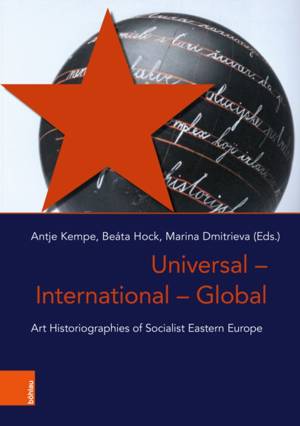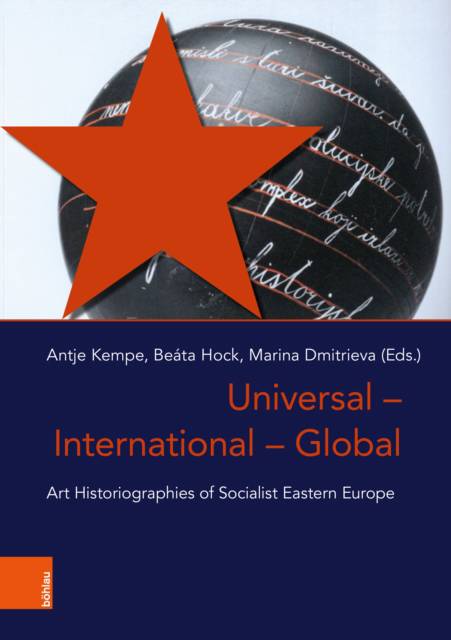
- Afhalen na 1 uur in een winkel met voorraad
- Gratis thuislevering in België vanaf € 30
- Ruim aanbod met 7 miljoen producten
- Afhalen na 1 uur in een winkel met voorraad
- Gratis thuislevering in België vanaf € 30
- Ruim aanbod met 7 miljoen producten
Zoeken
Universal - International - Global
Art Historiographies of Socialist Eastern Europe
€ 48,45
+ 96 punten
Omschrijving
This collection of articles explores a possible alternative beginning of Global Art History and World Art Studies, two methodologies that set a worldwide focus in the study of art around the 2000s. Reaching back to earlier efforts to conceive of the international community in a less Eurocentric way, the volume proposes a tentative link between socialist internationalism as a political and cultural diplomatic principle in the Soviet Block and some new approaches to art and cultural historiography introduced there. In the "Second World", universal art history or Weltkunstgeschichte were endorsed as frameworks for the teaching and writing of art history. Authors in this book interrogate whether "world art history" as practiced by socialist scholars had aspirations and achievements comparable to today's Global Art History and World Art Studies. Or was this knowledge production in an internationalist paradigm a mere foil for communist rhetoric, behind which severed cultural relations to the Western world could also be recommenced?
Specificaties
Betrokkenen
- Uitgeverij:
Inhoud
- Aantal bladzijden:
- 232
- Taal:
- Engels
- Reeks:
- Reeksnummer:
- nr. 13
Eigenschappen
- Productcode (EAN):
- 9783412520816
- Verschijningsdatum:
- 23/01/2023
- Uitvoering:
- Hardcover
- Formaat:
- Genaaid
- Afmetingen:
- 170 mm x 239 mm
- Gewicht:
- 485 g

Alleen bij Standaard Boekhandel
+ 96 punten op je klantenkaart van Standaard Boekhandel
Beoordelingen
We publiceren alleen reviews die voldoen aan de voorwaarden voor reviews. Bekijk onze voorwaarden voor reviews.










